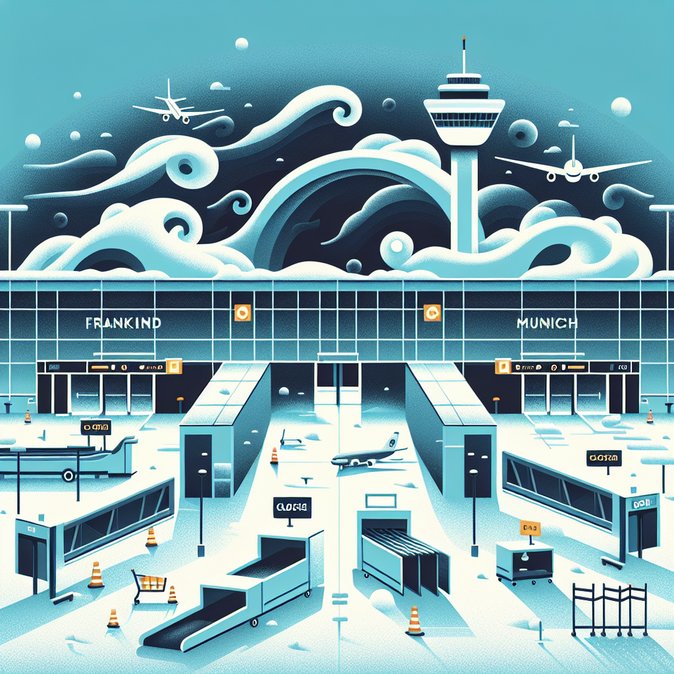
Business travellers faced a bruising start to the weekend on 15 November after a perfect storm of freezing fog, de-icing shortages and crew sickness triggered 41 flight cancellations and nearly 860 delays across Germany’s six largest airports. Real-time data compiled by aviation analytics firm Cirium and published by Travel and Tour World show Lufthansa shouldering the bulk of the disruption, followed by KLM and SAS.
Frankfurt recorded the heaviest knock-on effect, with average departure delays of 73 minutes and 18 outright cancellations, including two trans-Atlantic rotations. Munich, Hamburg, Düsseldorf, Berlin Brandenburg and Stuttgart also reported extensive hold-ups, forcing airlines to issue blanket change-fee waivers. Ground-handling contractors blamed sick-leave levels of up to 18 % as a wave of seasonal influenza swept through the workforce.
![41 flight cancellations and 858 delays hit German hubs as winter weather and staffing crunch collide]()
Why it matters – The episode is a stark reminder that Germany’s aviation ecosystem remains fragile despite a summer of record passenger volumes. For global-mobility managers, the immediate task is to re-route stranded staff and monitor duty-of-care obligations, but the medium-term concern is capacity: several airports operate with staffing buffers well below pre-pandemic norms, raising the risk of repeated disruptions during the December peak.
Practical tips – Companies should:
1. Encourage travellers to build a longer “Schengen cushion” into meeting schedules;
2. Activate airline business-account hotlines early to secure scarce seats; and
3. Remind staff that rail vouchers remain an option for domestic segments when Lufthansa cancels.
Frankfurt recorded the heaviest knock-on effect, with average departure delays of 73 minutes and 18 outright cancellations, including two trans-Atlantic rotations. Munich, Hamburg, Düsseldorf, Berlin Brandenburg and Stuttgart also reported extensive hold-ups, forcing airlines to issue blanket change-fee waivers. Ground-handling contractors blamed sick-leave levels of up to 18 % as a wave of seasonal influenza swept through the workforce.

Why it matters – The episode is a stark reminder that Germany’s aviation ecosystem remains fragile despite a summer of record passenger volumes. For global-mobility managers, the immediate task is to re-route stranded staff and monitor duty-of-care obligations, but the medium-term concern is capacity: several airports operate with staffing buffers well below pre-pandemic norms, raising the risk of repeated disruptions during the December peak.
Practical tips – Companies should:
1. Encourage travellers to build a longer “Schengen cushion” into meeting schedules;
2. Activate airline business-account hotlines early to secure scarce seats; and
3. Remind staff that rail vouchers remain an option for domestic segments when Lufthansa cancels.








